Winning the battle against COVID-19 in northern Pakistan
Through mass testing, hygiene awareness and vaccine roll-out, AKF and the communities we serve are fighting back against COVID-19

The first healthcare institution built by Aga Khan Health Services (AKHS) in present-day Pakistan was a 42-bed maternity hospital in Karachi that dates back to 1924. In Gilgit-Baltistan and Chitral – the most rugged and remote area in the country – health services were established in 1987. Today, primary and secondary health care by Aga Khan Health Services reaches over 800,000 people across Pakistan, however an unprecedented, global pandemic has meant changes in the way these services are accessed and delivered.
Reaching communities in the remote valleys of northern Pakistan has always been challenging due to the difficult terrain, limited resources and few and far between healthcare facilities. Already facing climate and socio-economic challenges, the pandemic has put additional strain on existing services.
Working in partnership with local communities and local government, and with financial support from the European Union and the Aga Khan Foundation, AKHS have been working on a programme to strengthen the critical preparedness and response for COVID-19 in Gilgit-Baltistan and Chitral. This programme has been tackling challenges through transmission and disease control measures, reducing anti-COVID-19 rhetoric, assisting with the vaccine roll-out initiative, and optimising care for patients – whilst minimising the impact on the health system in the region.
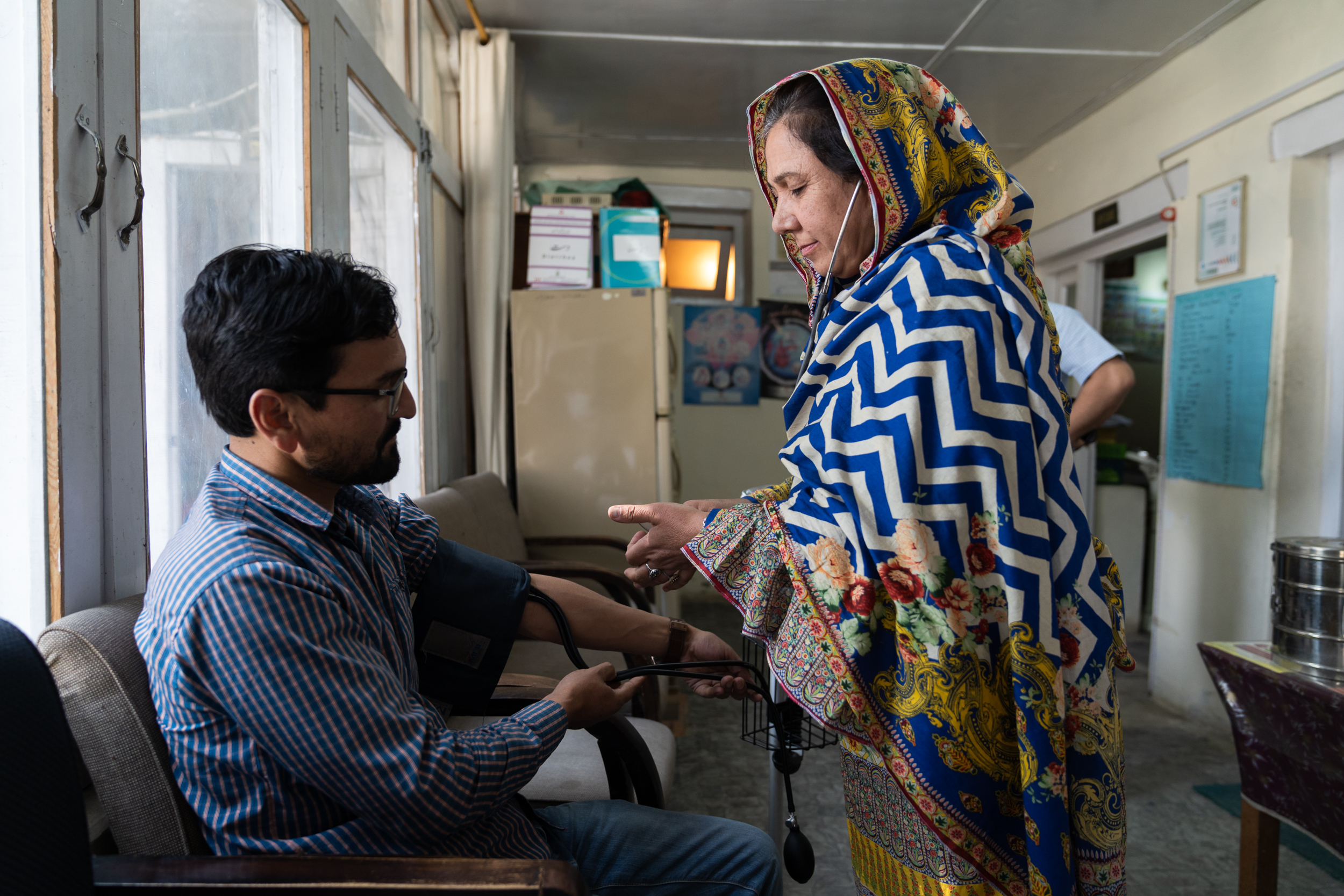
COVID-19 cases were first identified in northern Pakistan in early 2020. Individuals that tested positive for the virus were moved to government quarantine centres, and ‘smart lockdowns’ were imposed regionally. As part of the programme, AKHS with the support of the Aga Khan Response Support Programme (AKRSP) set up COVID-19 task force groups with target local support organisations (LSOs), forming local committees to help identify and manage virus risks in communities. Alongside this, an array of awareness sessions, hygiene kit distributions and emergency services were established to manage the effects of the pandemic. This included the creation of six new COVID-19 emergency response centres (ERCs) that provided 44 additional hospital beds across Gilgit Baltistan, complete with ventilators and emergency transport. Healthcare consultations for patients were also made possible through video calls for the first time ever – a ground-breaking service in this region.
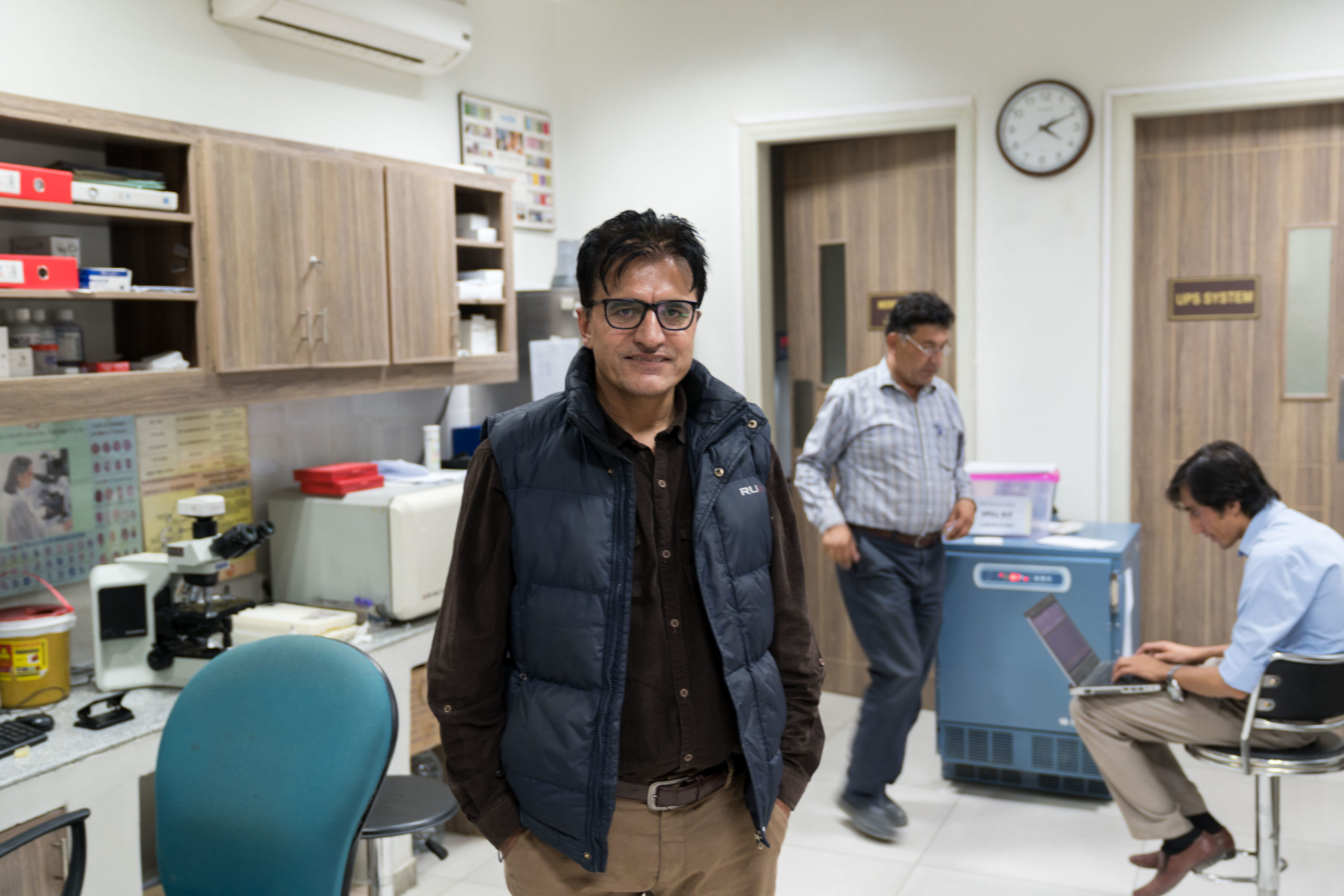
Under the programme, Gilgit’s first RT-PCR testing laboratory was set up to formalise and improve the accuracy and efficiency of mass testing. Where testing was previously limited to process four test samples at a time, under a new RT-PCR testing method, 96 test samples could be processed simultaneously allowing the handling of an outbreak to be dealt with much quicker than before. The RT-PCR testing is not only limited to COVID-19 but can also be used to detect HIV, Hepatitis C and other viruses, transforming future testing in the region.
The creation of the testing laboratory was led by volunteer Sehreen Ali, based in Houston, Texas, with support from staff at the Aga Khan Medical Centre in Gilgit and the National Institute of Health (NIH) in Islamabad. Before visiting Pakistan, Sehreen successfully set up a similar testing laboratory in Kenya explaining, “my personal goal is to empower myself and others and share my knowledge with as many people as possible.”
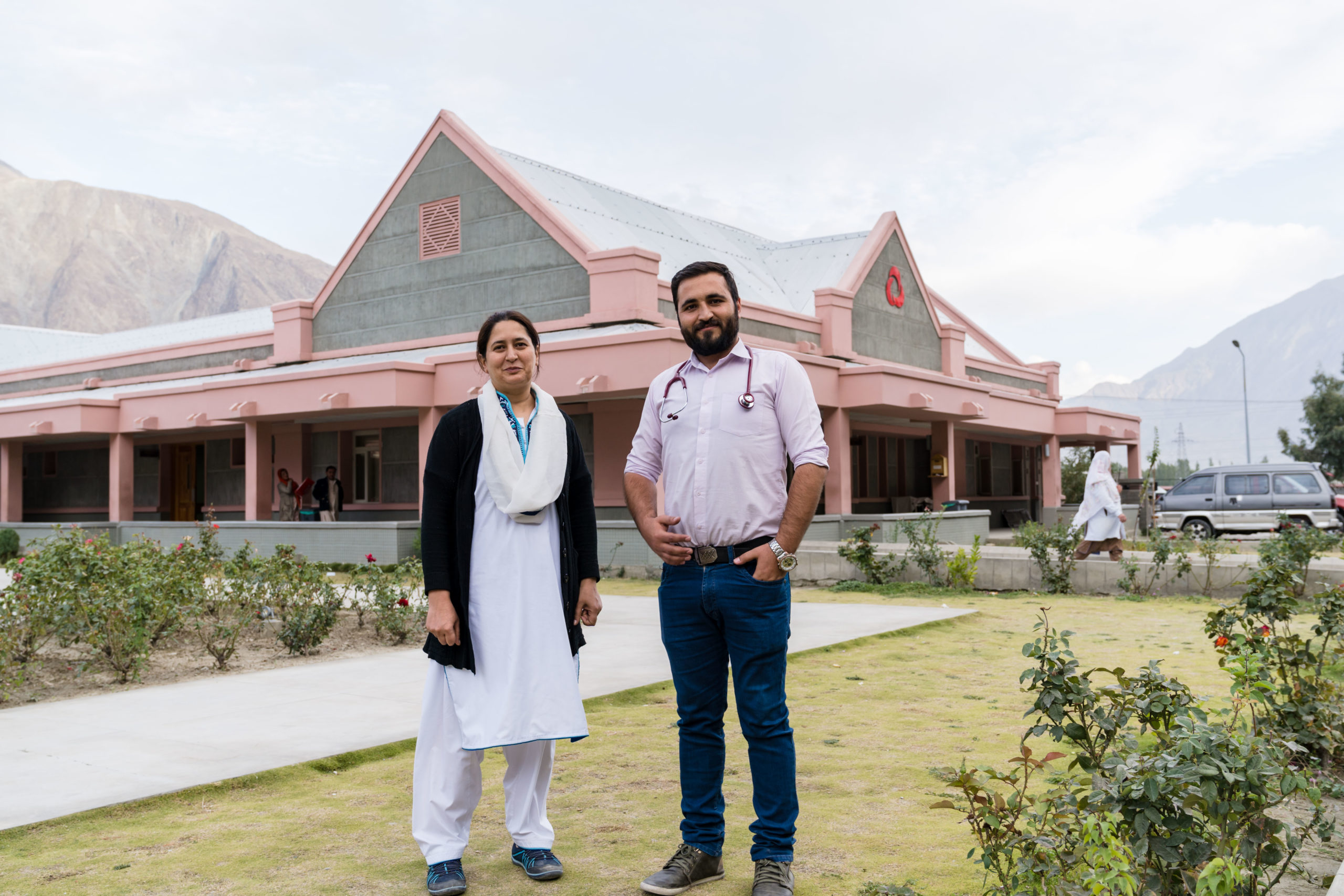
In 2021, COVID-19 vaccines were introduced globally. With their arrival in Pakistan, government targets were made across the country to drive vaccine uptake. Although prior efforts to increase COVID-19 safety and prevention initiatives were widely promoted and adopted within communities, there was some reluctance by more remote regions to get vaccinated. Collaborating with Pakistan’s Department of Health, AKHS trained staff and volunteers to inform communities about the importance of the vaccine to help change the rhetoric. This effort paved the way for reaching and even surpassing vaccine targets – especially in upper and lower Chitral where almost double the vaccination targets were met. As part of this mobile vaccination drive, AKHS and AKRSP reached communities in remote valleys such as the Tehsil Gultari and Broghil valley.
A resident of Tehsil Gultari explains: “we are shepherds, lost in these high mountains and almost forgotten by our fellow humans. Thank you for coming to us and showing that we also matter.”
“We are shepherds, lost in these high mountains and almost forgotten by our fellow humans. Thank you for coming to us and showing that we also matter.”
Local resident, Tehsil Gultari
Mobilising in this way and moving between villages and communities daily meant that higher numbers of residents were getting vaccinated more rapidly. Almost 530 individuals were vaccinated in the small locality of Oshikhandas in one day. Gilgit’s Deputy Commissioner said: “without any doubt, it is an extraordinary achievement. I was surprised to see the overwhelming number of people showing up for the COVID-19 vaccination in a single day. I am confident to say that AKRSP and the European Commission are key actors in getting vaccination tasks completed.” To date, more than 42,000 people in Gilgit-Baltistan have received the first dose of the vaccine and 40,000 people have received the second dose at AKHS health facilities.
At the the end of this project, AKHS have established long-lasting healthcare infrastructure and resources over the course of this two-year project. Establishing working relationships with local and governmental organisations, these structures will continue to protect communities not only from this pandemic, but future healthcare related outbreaks.
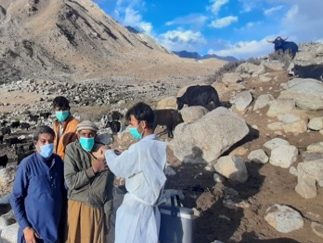
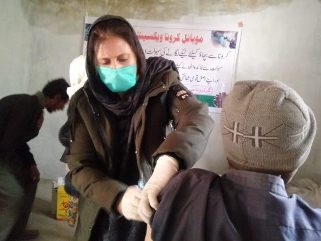
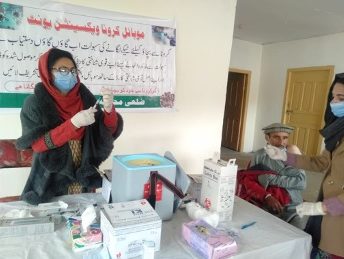
‘Critical preparedness, readiness and response actions for the coronavirus disease pandemic in Gilgit-Baltistan and Chitral’ is a project funded by the European Union and the Aga Khan Foundation and implemented by agencies of the Aga Khan Development Network. Views and opinions expressed are however those of the author(s) only and do not necessarily reflect those of the European Union. Neither the European Union nor the granting authority can be held responsible for them.


Support our work Your donations are helping us build a future where we all thrive together.